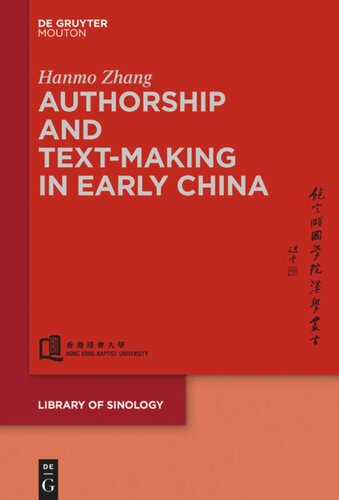

Most ebook files are in PDF format, so you can easily read them using various software such as Foxit Reader or directly on the Google Chrome browser.
Some ebook files are released by publishers in other formats such as .awz, .mobi, .epub, .fb2, etc. You may need to install specific software to read these formats on mobile/PC, such as Calibre.
Please read the tutorial at this link: https://ebookbell.com/faq
We offer FREE conversion to the popular formats you request; however, this may take some time. Therefore, right after payment, please email us, and we will try to provide the service as quickly as possible.
For some exceptional file formats or broken links (if any), please refrain from opening any disputes. Instead, email us first, and we will try to assist within a maximum of 6 hours.
EbookBell Team

0.0
0 reviewsThis book is a timely response to a rather urgent call to seek an updated methodology in rereading and reappraising early Chinese texts in light of newly discovered early writings. For a long time, the concept of authorship in the formation and transmission of early Chinese texts has been misunderstood. The nominal author who should mainly function as a guide to text formation and interpretation is considered retrospectively as the originator and writer of the text. This book illustrates that although some notions about the text as the author’s property began to appear in some Eastern Han texts, a strict correlation between the author and the text results from later conceptions of literary history. Before the modern era, there existed a conceptual gap between an author and a writer. A pre-modern Chinese text could have had both an author and a writer, or even multiple authors and multiple writers. This work is the first study addressing these issues by more systematically emphasizing the connection of the text, the author, and the religious and sociopolitical settings in which these issues were embedded. It is expected to constitute a palpable contribution to Chinese studies and the discipline of philology in general